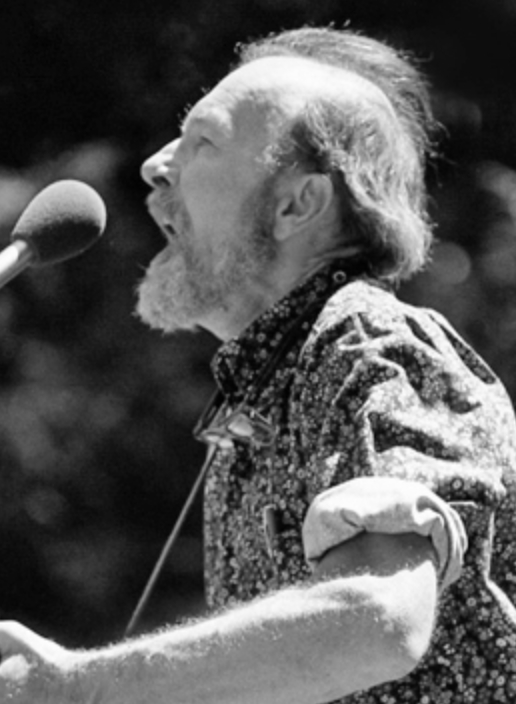On this date in 1919, Peter Seeger was born in Manhattan to musicologist Charles Seeger and concert violinist Constance de Dyver Edson Seeger. Best known for his legendary contributions to folk music, he wrote such songs as “If I Had A Hammer” and the anti-war song “Where Have All the Flowers Gone.” He popularized the German folk song “Die Gedanken Sind Frei,” which celebrates freedom of thought. He was committed to social activism throughout his entire life, lending his music and his voice to the civil rights movement, anti-war efforts and the environment.
Seeger was exposed to folk music early on, as his father and stepmother collected and transcribed rural American folk music. He attended Harvard University with the intention of becoming a journalist but dropped out after two years and moved to New York City. He began to work with other folk performers and his career was launched.
At age 20 Seeger married Toshi-Aline Öta, with whom he had four children. Due to his affiliation with the Communist Party in the 1940s, he was summoned before the House Un-American Activities Committee in 1953 and indicted for contempt of Congress in 1957, though the indictment was overturned a year later. In his testimony, he said, “I am not going to answer any questions as to my association, my philosophical or religious beliefs or my political beliefs, or how I voted in any election, or any of these private affairs. I think these are very improper questions for any American to be asked, especially under such compulsion as this.”
Seeger continued to write music and perform around the world into the 21st century. In 1972 he was inducted into the Songwriters Hall of Fame. He received a Lifetime Achievement Award in 1993. In 1994 he was honored by the Kennedy Center. He was also awarded the National Medal of Arts that same year. In 1996 he was inducted into the Rock and Roll Hall of Fame under the category of Early Influences.
When asked about his religious views in a Beliefnet interview (March 16, 2007), Seeger described himself as a pantheist, saying, “I feel most spiritual when I’m out in the woods. I feel part of nature. Or looking up at the stars. [I used to say] I was an atheist. Now I say, it’s all according to your definition of God.” (D. 2014)
PHOTO: Seeger performing in 1978; Brian McMillen photo (cropped) under CC 4.0.
Give Me That Old Time Religion
(Pete Seeger)
Give me that old time religion
Give me that old time religion
Give me that old time religion
It’s good enough for me.
We will pray with Aphrodite,
We will pray with Aphrodite,
She wears that see-through nightie,
And it’s good enough for me.
We will pray with Zarathustra,
We’ll pray just like we use ta,
I’m a Zarathustra booster,
And it’s good enough for me.
We will pray with those Egyptians,
Build pyramids to put our crypts in,
Cover subways with inscriptions,
And it’s good enough for me.
We will pray with those old druids,
They drink fermented fluids,
Waltzing naked though the woo-ids,
And it’s good enough for me.
We do dances to bring water,
Prepare animals for slaughter,
Sacrifice our sons and daughters,
And it’s good enough for me.
I’ll arise at early morning,
When my Lord gives me the warning,
That the solar age is dawning,
And it’s good enough for me.

